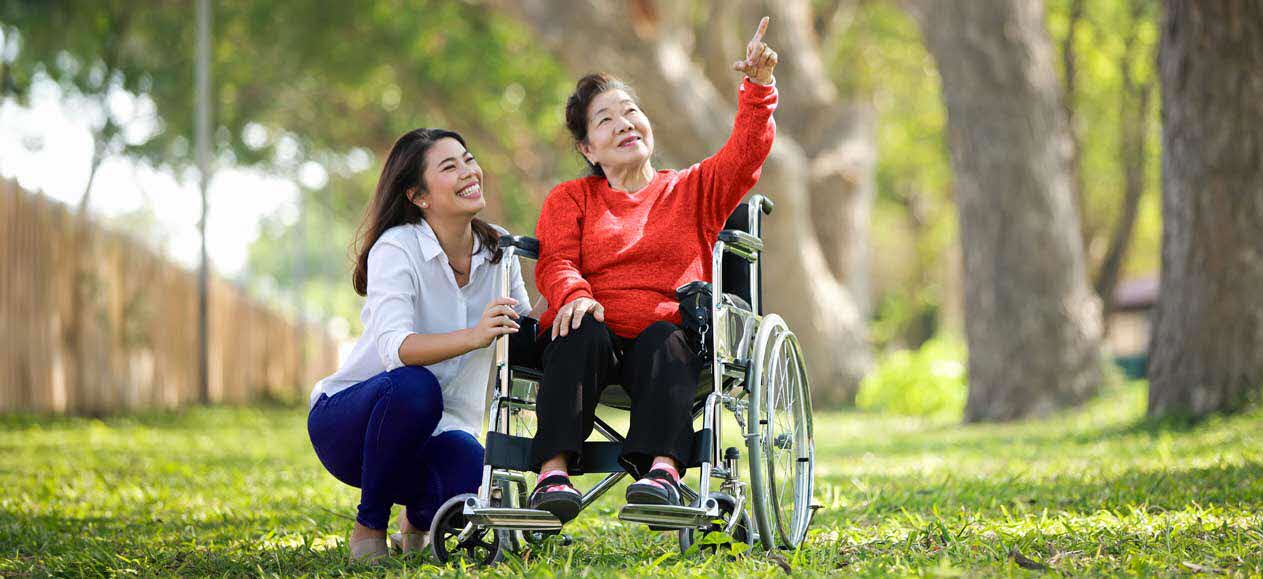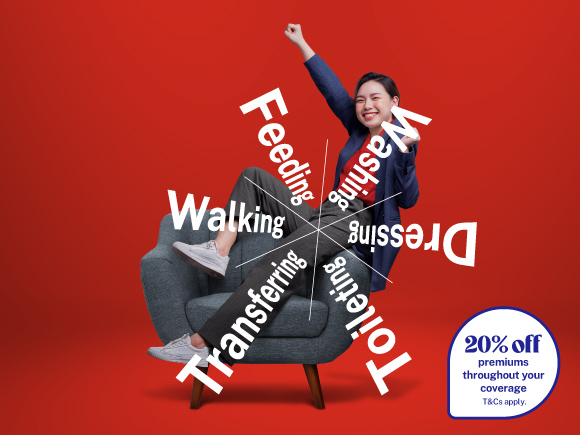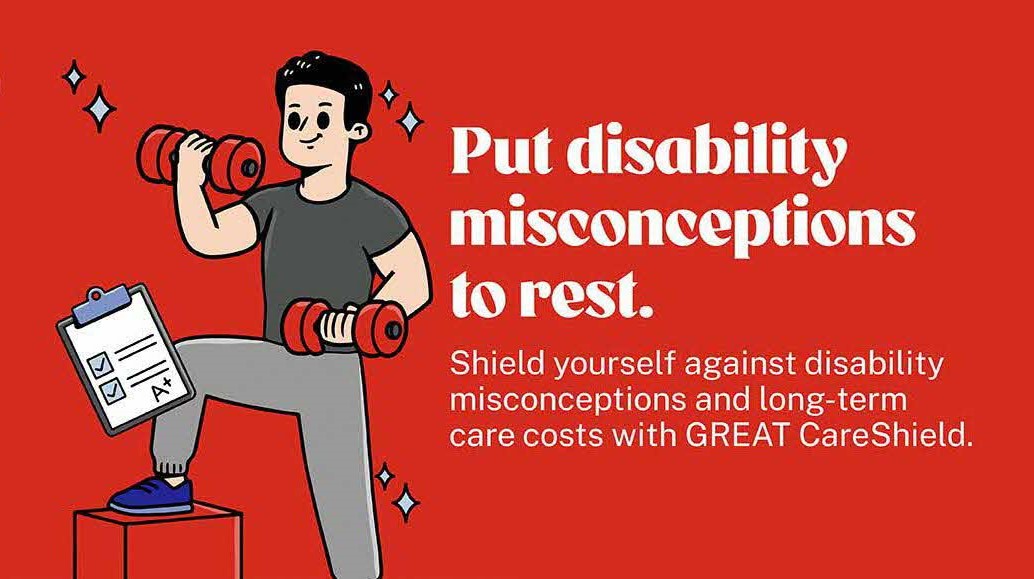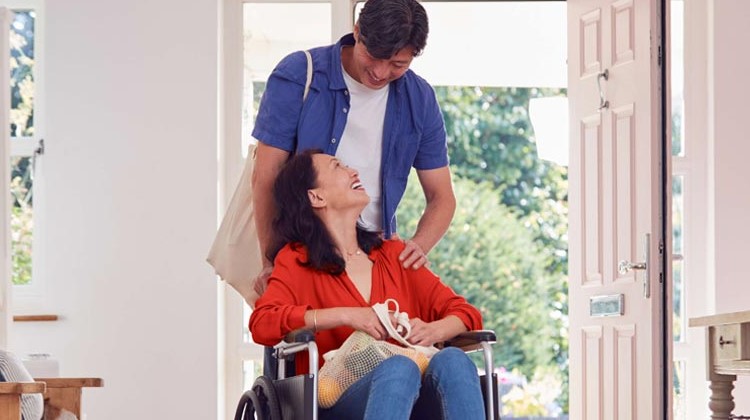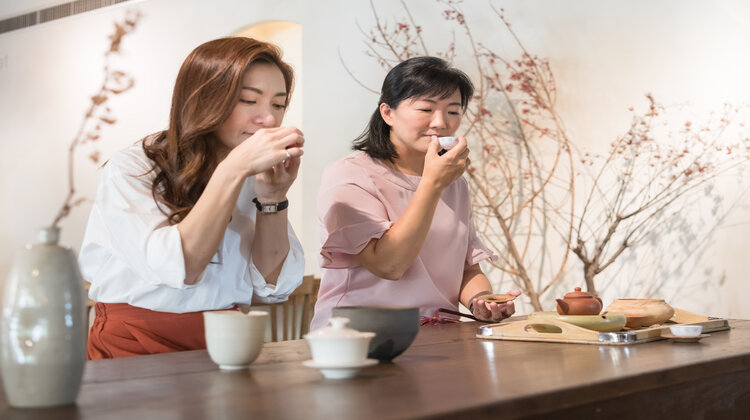47% of caregivers restrain dementia patients
Study finds that half of caregivers of seniors with dementia and living at home use physical restraints
SINGAPORE – Out of 215 caregivers of seniors with advanced dementia and living at home, 47 per cent reported using physical restraints, according to a study from Duke-NUS Medical School.
The most common reasons for the use were to prevent falls, wandering and removing catheters or feeding tubes. Restraints also helped to manage the seniors when they became violent.
The study, published in February 2024 in the Journal of the American Geriatrics Society, found that the most common restraints used were belts or sheet ties, followed by locked geriatric chairs with fixed tray tables, hand mittens and ankle or wrist ties. The caregivers in the study were recruited from public hospitals, home-care foundations and hospices – where their family members were seeking care – between May 2018 and March 2021.
The study found that caregivers who had strong emotional support from friends were less likely to report restraint use. But caregivers who felt distressed and overburdened were more likely to report restraint use. This highlights the need to provide caregivers with adequate emotional support, said Dr Ellie Bostwick Andres, first author of the paper and a senior research fellow at the Lien Centre for Palliative Care at Duke-NUS.
Mr Daniel Lim, 44, whose father was diagnosed with dementia in 2009 and died in May 2024, said support can come in many ways, such as formal caregiver support groups. Mr Lim, an adjunct lecturer, who was not involved in the study, also credits support from neighbours and neighbourhood businesses such as convenience stores.
He noted that if it was not for them, his family would not have “survived 15 years”. For example, when his father got lost, neighbours helped to track him down. And sometimes when they went out to get food, they would buy food for his family too.
He added that if his father left a store without paying for what he took, the owner would not call the police but notify him instead for payment.
Mr Lim advises caregivers to “know their neighbours” and be connected to the community.
Assistant Professor Chetna Malhotra from the Lien Centre for Palliative Care at Duke-NUS, who supervised the study, said: “The use of physical restraints is not a good or bad decision. It is a decision that caregivers take within their own context.
“And there are two sides of the coin. When they make the decision to restrain, they are coming from a perspective of keeping their loved ones safe.”
However, the researchers stressed that physically restraining family members with dementia may not be the best option, as doing so can have detrimental physical and psychological impacts.
Dr Andres noted that long-term restraining may result in bed sores and cause muscles to weaken, making the patient more prone to falls.
Physically restraining someone also takes away his or her independence and dignity, possibly leading to depression, anxiety, delirium and post-traumatic stress in family members with dementia.
Instead, the researchers suggested tapping innovative methods. When Mr Lim’s father refused to take a shower, his mother thought of using a commode chair and restraining him with bandages, so that they could help him shower.
Mr Lim’s suggestion was for his mother to take a shower with his father so it would not be like they were forcing him to do so, and they would not have to use restraints. It could even be romantic, he said.
And instead of using a feeding tube for loved ones who refuse to eat, caregivers could find ways to make the food more appealing. They can add chilli and other flavours, and change the shape or texture of the item to suit the needs of the person, said Prof Malhotra.
Before buying food, Mr Lim recommends asking loved ones with dementia what they want to eat, and not decide for them, so they are involved in making choices. “They may not be able to comprehend what they want, so a photo book might help,” he said. He created one with pictures of food such as rojak to help his father decide.
The photo book also had pages for his father to colour so that he would be distracted and not get angry while waiting for his food.
Mr Lim, who is also co-founder of Enable Asia, a social enterprise that advocates for people with dementia and their family caregivers, noted that there is no prescribed way to care for someone with the condition. Personalisation and customisation are needed so care is tailored to their needs.
With the study findings, the researchers hope to raise awareness about the use of physical restraints and advocate more support for caregivers. This is especially as Singapore’s ageing population gathers pace, and at least 10 per cent of the elderly population is expected to develop dementia.
For more resources on how to care for a loved one with dementia, visit https://www.aic.sg/caregiving/caring-for-loved-one-with-dementia/
Caring for a loved one with dementia can be challenging and emotionally draining. Though it is important to have a support system to alleviate caregivers’ emotional and psychological challenges, it is equally crucial to cushion the financial implications of such care in the long term.
As dementia progresses, the patient may experience some forms of disability when they are unable to perform the Activities of Daily Living1 (“ADLs”) like dressing and toileting. Disability coverage can provide financial protection in the form of monthly payouts to alleviate the burden of unexpected medical and caregiving expenses.
Supplement your disability coverage with GREAT CareShield, which is payable using your MediSave funds2, and receive monthly payouts3 when you are unable to perform just 1 out of the 6 ADLs. Additionally, you will also receive a lump sum payout4 that may be payable again upon future occurrence of disability from a different and unrelated cause.
Upon the inability to perform at least 2 ADLs, GREAT CareShield provides an additional 60% of the Monthly Benefit in monthly payouts5 for caregiving support and an additional 30% of the Monthly Benefit in monthly payouts6 to provide for your child.
Get a quote within minutes and enjoy 20% off premiums throughout your coverage when you sign up today!
Source: The Straits Times. Permission required for reproduction.
Footnotes
1 The 6 Activities of Daily Living (ADLs) are: washing, toileting, dressing, feeding, walking or moving around and transferring.
2 Subject to cap of S$600 per calendar year per insured person.
3 Subject to Deferment Period. Payouts of Monthly Benefit are payable for as long as the Life Assured suffers from the applicable number of disabilities, up to a lifetime.
4 Subject to Deferment Period. The Initial Benefit is a lump sum payment equivalent to 3 times of the Monthly Benefit. In the event the Life Assured fully recovers from the disability, the Initial Benefit may be payable again for subsequent episodes of inability to perform at least 1 ADL. However, it is not payable if such subsequent disabilities arise from or are related to the cause of disability(ies) for which there was a previous claim for Initial Benefit.
5 Caregiver Benefit is subject to Deferment Period and payable for up to a maximum of 12 months (whether consecutive or not) per Policy Term.
6 Dependant Care Benefit is applicable if the Life Assured has a Child who is below 22 years old (age last birthday) as at the Claim Date; subject to Deferment Period and payable for up to a maximum of 48 months (whether consecutive or not) per Policy Term.
Disclaimer
T&Cs apply.
This advertisement has not been reviewed by the Monetary Authority of Singapore.
The information presented is for general information only and does not have regard to the specific investment objectives, financial situation or particular needs of any particular person.
GREAT CareShield can be purchased by CareShield Life or ElderShield policyholders. All Supplements are regulated under the CareShield Life and Long-Term Care Act 2019.
This is only product information provided by us. You may wish to seek advice from a qualified adviser before buying the product. If you choose not to seek advice from a qualified adviser, you should consider whether the product is suitable for you. Buying health insurance products that are not suitable for you may impact your ability to finance your future healthcare needs. If you decide that the policy is not suitable after purchasing the policy, you may terminate the policy in accordance with the free-look provision, if any, and the insurer may recover from you any expense incurred by the insurer in underwriting the policy.
This policy is protected under the Policy Owners’ Protection Scheme which is administered by the Singapore Deposit Insurance Corporation (SDIC). Coverage for your policy is automatic and no further action is required from you. For more information on the types of benefits that are covered under the scheme as well as the limits of coverage, where applicable, please contact us or visit the Life Insurance Association (LIA) or SDIC websites (www.lia.org.sg or www.sdic.org.sg).
Information correct as at 28 August 2024.
Let us match you with a qualified financial representative
Our financial representative will answer any questions you may have about our products and planning.




